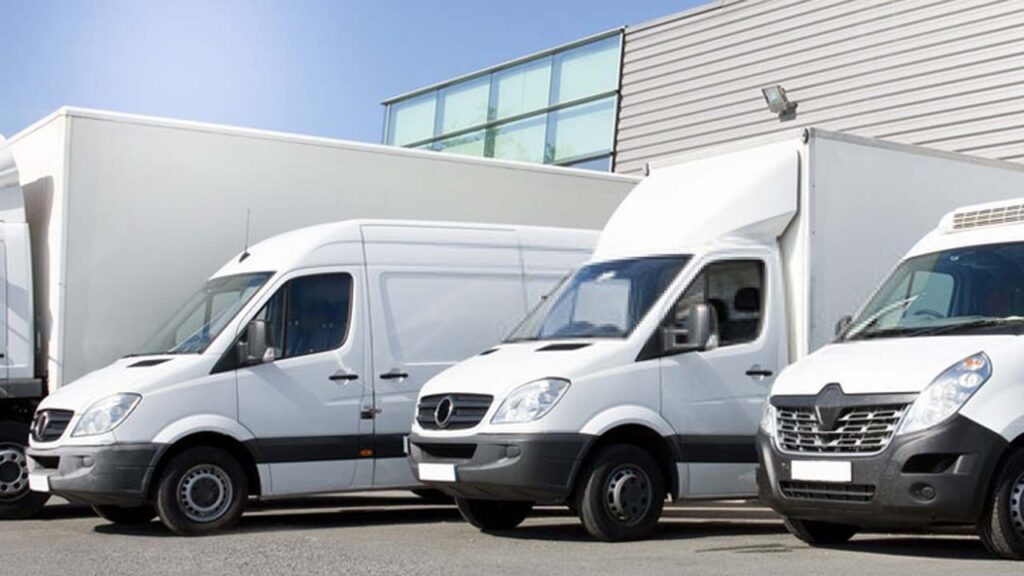SGDLoan.com – Starting or expanding a business in Singapore often demands reliable transportation solutions, especially for sectors like logistics, construction, or delivery services.
Securing a commercial loan vehicle provides a practical pathway for businesses to acquire essential transport assets without straining their capital reserves.
This article comprehensively explores the meaning of commercial vehicle loans, requirements for eligibility, financing percentages, leasing alternatives, and practical tips to navigate the Singaporean market confidently.
Whether you are purchasing your first vehicle for your business or planning to expand your fleet, understanding the nuances of commercial financing is crucial to making an informed decision.
Introduction: Understanding Commercial Loan Vehicle Options in Singapore

In Singapore’s competitive business landscape, transportation is a key operational pillar for many industries.
From SMEs to larger corporations, the need for a reliable fleet often leads businesses to seek financing solutions.
One such solution is through a commercial loan vehicle, which allows businesses to procure vehicles with manageable financial commitments over time.
Before diving into the financing details, it is essential to recognise the pivotal role vehicles play in operational efficiency and market expansion.
Whether it’s for delivery, logistics, or site transportation, the right commercial vehicle can enhance productivity and customer satisfaction significantly.
What is a Commercial Loan Vehicle?

Understanding what a commercial loan vehicle entails is the first step toward leveraging it effectively for your business needs.
A commercial loan vehicle is a financing agreement where a lender provides funds specifically for the purchase of a vehicle that will be used for business operations.
These loans differ from personal vehicle loans in several ways:
- Usage Restrictions: Commercial vehicles must primarily serve business functions.
- Loan Structures: Commercial loans may offer different interest rates, tenures, and repayment schedules.
- Vehicle Types: Vans, lorries, trucks, buses, and specialised vehicles (like refrigerated trucks) are commonly financed under these loans.
Additionally, some lenders provide flexibility in financing multiple vehicles under one facility, which is particularly useful for businesses planning to build or expand their fleets.
In Singapore, commercial vehicles are often categorized separately by regulatory authorities like the Land Transport Authority (LTA), emphasizing their dedicated business use.
Commercial Vehicle Loan Requirements in Singapore

Before applying for a commercial loan vehicle, businesses must meet specific eligibility criteria and prepare detailed documentation.
Being well-prepared not only speeds up the application process but also improves the chances of securing favorable loan terms.
General Business Requirements
Lenders in Singapore typically expect businesses to demonstrate financial stability and operational credibility.
These are some of the core requirements:
- ACRA Business Profile: Proof of business registration and active status.
- Operational Tenure: Businesses should have been operating for at least 6 to 12 months.
- Annual Revenue: Some financial institutions set a minimum annual turnover requirement.
- Directorship Details: Full disclosure of company directors and shareholders.
Document Checklist for Application
- Company Documents: Latest ACRA business profile, recent corporate bank statements (6 months), and audited financial reports (if available).
- Personal Documents (for Directors): NRIC copy (front and back), recent utility bills or tenancy agreements as proof of address, and income tax Notice of Assessment for the past two years.
- Vehicle Details: Official quotation, proforma invoice, or registration details for used vehicles.
Vehicle Conditions
Most lenders also specify conditions regarding the vehicle itself:
- Vehicle Age Limit: Generally, not older than 10 years at the end of the loan tenure.
- Vehicle Type: Must be classified as a commercial vehicle (not private or passenger vehicle).
Preparing these documents meticulously ensures a smoother application process and minimises delays due to missing information.
How Much Can You Borrow? Commercial Vehicle Loan Percentage

Understanding how much financing you can secure is critical when planning for a commercial loan vehicle.
In Singapore, the commercial vehicle loan percentage typically ranges between 70% and 90% of the vehicle’s purchase price, depending on various factors.
This means businesses must prepare to cover the remaining 10% to 30% as a downpayment.
Factors Influencing Loan Percentage
| Factors | Influence |
|---|---|
| Type of Vehicle | New vehicles usually attract higher loan percentages compared to used ones. |
| Age of Vehicle | Newer vehicles are eligible for maximum financing; older vehicles have reduced loan caps. |
| Creditworthiness | Businesses and owners with strong credit profiles can negotiate higher financing. |
| Business Financial Health | A profitable and stable business history supports better loan offers. |
Example Simulation:
- A new commercial van costs SGD 60,000.
- If eligible for 90% financing, loan amount = SGD 54,000.
- Required downpayment = SGD 6,000.
It is worth noting that government incentives such as the Productivity Solutions Grant (PSG) can sometimes help offset costs for businesses upgrading their vehicles for operational improvements.
Thus, consulting directly with banks such as DBS SME Banking can provide up-to-date, detailed loan percentages and incentives available.
Top Commercial Vehicle Leasing Companies in Singapore

For businesses prioritizing flexibility over ownership, leasing may present a viable alternative to obtaining a commercial loan vehicle.
Many reputable leasing companies in Singapore offer packages designed for commercial needs.
Here are some noteworthy options:
Goldbell Leasing:
Recognized as a leader in commercial vehicle leasing, Goldbell offers comprehensive services, including maintenance, insurance, and fleet management options.
Cycle & Carriage Leasing:
Well-known for their diverse fleet, Cycle & Carriage provides flexible leasing contracts, catering specifically to SMEs and larger logistics companies.
Hertz Singapore:
Offers premium commercial leasing solutions with customizable terms, particularly beneficial for businesses requiring upscale vehicle fleets.
Prime Leasing:
Known for affordable rental options, Prime Leasing supports both short-term and long-term leasing with inclusive maintenance packages.
These companies not only provide vehicles but also offer value-added services like replacement vehicles during servicing, telematics solutions, and tailored maintenance plans to keep operations running smoothly.
Pros and Cons: Loan vs Leasing a Commercial Vehicle

Deciding between taking a commercial loan vehicle or leasing depends largely on your business strategy and financial flexibility.
Here is a closer comparison:
Advantages of Taking a Loan
- Full Ownership: You gain complete ownership once the loan is paid off, offering long-term asset value.
- No Usage Restrictions: No mileage limits or leasing conditions once the loan is completed.
- Potential Asset Appreciation: Depending on market conditions, some specialized vehicles retain value.
Disadvantages of Taking a Loan
- Higher Initial Costs: Significant downpayment is required upfront.
- Depreciation Risks: Ownership means bearing the full depreciation loss.
- Maintenance Costs: You are responsible for all maintenance and insurance expenses.
Advantages of Leasing
- Lower Upfront Costs: Leasing often requires minimal or no downpayment.
- Predictable Budgeting: Fixed monthly costs simplify financial planning.
- Flexibility: Easy vehicle upgrades every few years without resale hassle.
Disadvantages of Leasing
- No Ownership: You do not own the asset at the end of the term.
- Contract Limitations: Restrictions on mileage and modifications apply.
- Termination Fees: Ending a lease prematurely can incur penalties.
Carefully evaluating your cash flow, operational needs, and long-term business plans will help you choose the best financing model.
Step-by-Step: How to Apply for a Commercial Loan Vehicle in Singapore
Applying for a commercial loan vehicle can seem daunting, but breaking it down into clear steps can simplify the journey.
Here’s how you can proceed:
- Determine Business Needs: Identify the type of vehicle that fits your operational requirements.
- Set a Budget: Establish a realistic budget, considering downpayment, monthly instalments, and operating costs.
- Research Vehicles and Lenders: Shortlist vehicles and compare lenders’ offers through platforms like CompareFirst.sg.
- Prepare Required Documents: Refer to the detailed checklist under “Commercial Vehicle Loan Requirements in Singapore.”
- Apply for Pre-Approval: Some lenders offer pre-approval services that give you an idea of your loan eligibility.
- Submit Full Application: Complete the formal application process with all required documentation.
- Loan Assessment: Allow the lender to assess your financial documents and credit profile.
- Approval and Disbursement: Upon approval, review the loan terms carefully before signing. Funds are usually disbursed directly to the vehicle dealership.
- Vehicle Collection: Complete vehicle registration and insurance before collecting your commercial vehicle.
Applying early and ensuring all paperwork is accurate can significantly reduce approval times.
Tips for Getting Approved Quickly
Fast approval for a commercial loan vehicle requires preparation and strategy.
Here are some effective tips:
- Enhance Business Profile: Maintain up-to-date ACRA information and financial reports to build lender confidence.
- Strengthen Credit Scores: Pay off any existing debts promptly and manage personal and business credit wisely.
- Opt for Newer Vehicles: New vehicles reduce lenders’ risk and improve chances of higher financing percentages.
- Work with Financial Advisors: Professional consultants can streamline application processes and negotiate better terms.
- Provide Collateral if Needed: Offering additional collateral can strengthen your loan application, especially for high-value loans.
By taking these proactive measures, businesses can increase their chances of securing the best loan deals in a shorter timeframe.
Investing in a commercial loan vehicle is an important financial decision that can significantly impact your business operations in Singapore.
By understanding the commercial vehicle loan requirements, the available loan percentage, and the top leasing alternatives, you can craft a strategy that supports sustainable growth.
Choosing between financing and leasing depends on your business objectives, cash flow flexibility, and long-term asset plans.
By preparing thoroughly and making informed choices, your business can secure the transportation it needs to thrive in Singapore’s dynamic market.
Resources such as OCBC’s SME vehicle loan guide and DBS SME Banking provide additional detailed insights for businesses exploring financing options.









